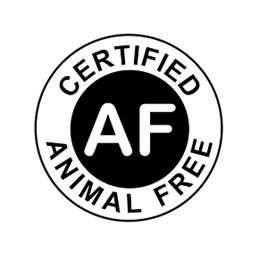Veg-Friendly Medications – A Kinder World For The Body, Animal And Planet
ByDr. SACHIN A SHAH
Special to India-West
For every 4 medications, three contain animal-derived ingredients, which can pose a problem for many people, including those with religious beliefs and dietary restrictions, certain health conditions, as well as those concerned about climate change and animal welfare. Pharmacist, Sachin A. Shah, CEO of VeganMed in CA and Professor of Pharmacy at University of the Pacific explains more about the need for correcting this and promoting optimal lifestyles. He is working to create a world where medications, supplements, and cosmetics do not contain any animal-derived ingredients. His research publications have generated over 1 billion impressions in several mainstream media outlets.
There are an estimated 1.9 billion Muslims, 1.2 billion Hindus, 535 million Buddhists, 14.7 million Jews, and 6 million Jains in the world. Many of these religions and others have dietary restrictions based on their beliefs. In Hinduism and Jainism, there is a strong emphasis on the practice of Ahimsa, or non-harming, as a spiritual and practical tool, which along with beliefs in karma (cause and effect) and samsara (reincarnation), guides Hindus and Jains following a vegetarian or vegan diet. Pork is forbidden in Jewish and Muslim diets, so porcine-derived medications, such as heparin, can present an issue. In Islam, gelatin is only acceptable if it comes from a halal source. Jehovah’s Witnesses forbid the storage and transfusion of blood and its products, such as albumin.
The growth of veganism in the United States has been nothing short of remarkable. According to a report published by the GlobalData Consumer Insights team, the number of self-identified vegans in the United States has increased by a staggering 600% in the last three years alone. While this surge in popularity can be attributed to several factors, documentaries like “Cowspiracy” and “Food, Inc.” have also shed light on the inhumane practices and environmental consequences associated with animal farming, prompting many individuals to reevaluate their dietary choices.
Outside of religious and dietary restrictions, patients with certain health conditions such as Alpha-Gal Syndrome (AGS) need to avoid animal-derived ingredients in food and medicines. Alpha-gal syndrome is a rare allergy to red meat and other mammalian products that is caused by a reaction to a carbohydrate molecule called alpha-gal. This molecule is found in the meat of most mammals, including cows, pigs, and sheep, as well as in some medications and other products that contain animal-derived ingredients. Symptoms of alpha-gal syndrome can range from mild to severe and may include hives, itching, swelling, and gastrointestinal symptoms such as nausea, vomiting, and diarrhea. In some cases, the allergy can cause a life-threatening allergic reaction known as anaphylaxis. Interestingly, the condition is typically caused when a person is bitten by the Lone Star tick, which carries a carbohydrate molecule in its saliva that is similar to alpha-gal.
The VeganMed team has helped patients with AGS to identify animal-free meds. For example, for a recent inquiry, the team contacted the pharmaceutical company to inquire about the medication’s animal-derived ingredients and received verbal confirmation that the medication was free of such ingredients. However, when our pharmacists inquired further and asked for written confirmation, the team discovered conflicting statements and had to contact the company again to ensure accuracy. The team ultimately found that the medication was not safe for alpha-gal patients and contained animal-derived ingredients. The incident highlights the importance of transparency and accuracy in medication labeling. Pharmaceutical companies must take this issue seriously and provide clear and accurate information to both healthcare professionals and patients.
India has a high percentage of vegetarians in its population, but most pharmaceutical capsules in the country are animal derived. While food regulations require a distinction between vegetarian and non-vegetarian items, this does not necessarily extend to pharmaceuticals and cosmetics. There have been proposals to replace animal-based capsules with cellulose-based ones marked with a green dot, but an expert panel recommended against this due to pricing and stability issues. The Central Drugs Standard Control Organization requires information on excipient origin for finished formulations of bulk medications, but there is no law to distinguish between animal- or plant-based ingredients. The American Medical Association policy H-100.947 urges medical product manufacturers in the US to disclose all animal-derived ingredients on their product labels, but it is not a requirement. The only way to avoid animal-derived products is to reach out to manufacturers directly as there is no official manufacturer database available to identify animal-free medications.
To tackle misinformation and lack of proper regulatory guidance, VeganMed has an animal-free certification program to enable an easy understanding of medication labels. They have a unique third-party certification program and are encouraging consumers to look for and purchase products with the Certified Animal-Free logo.

Many traditional medications contain animal-derived ingredients. For instance, some medications contain gelatin, which is derived from animal collagen, making them unsuitable for many individuals. Other medications may contain animal-derived stearic acid or magnesium stearate, which are commonly used as lubricants in medication manufacturing. If a product is certified as Animal-Free, they are using plant-based or synthetic alternatives such as HPMC capsules and plant-based magnesium stearate.
In a survey of 500 urological patients, 40% avoided animal products, but up to 50% of this subgroup were prescribed gelatin-containing medications. Physicians are often unaware of their patients’ dietary, religious, or moral restrictions. A survey of psychiatrists showed that 70% were aware that some prescription drugs contain animal-derived excipients, but most did not know if they applied to the drugs they prescribed.
On VeganMed.org consumers can identify over 1000 common health products that are verified or certified as animal-free and purchase them like they normally would via Amazon. As we grow, consumers will simply need to look for the certified AF logo on products.
Of note, the use of animal-derived ingredients in medications has environmental impacts. For example, the demand for fish oil for supplements has led to over 100 confirmed cases of marine life extinctions and bycatch of other ocean wildlife. Farm animal by-products, such as lactose, magnesium stearate, glycerin, and lanolin, are also popular sources of inactive ingredients in pharmaceuticals, supplements, and cosmetics. Animal agriculture contributes to greenhouse gas emissions, and deforestation, and uses a third of the world’s drinking water. Reducing animal consumption could free up resources and improve the environment.
We are on a mission to create a world with kinder health products, kinder for the body, the animals, and the planet!






Rekha
/
Great initiative
May 10, 2023Seema
/
Fantastic! Thank you so much for doing this. I am a lacto-vegetarian since birth, turned vegan for the past 2 decades. This is something I have been looking for for a long time. I will look for the AF logo going forward on medications.
May 10, 2023Curtis
/
This is an incredible initiative! I would love to see the Animal Free logo on my medications to help me make a more informed decision. Pharmaceutical companies have a responsibility to provide this information to consumers!!!
May 17, 2023